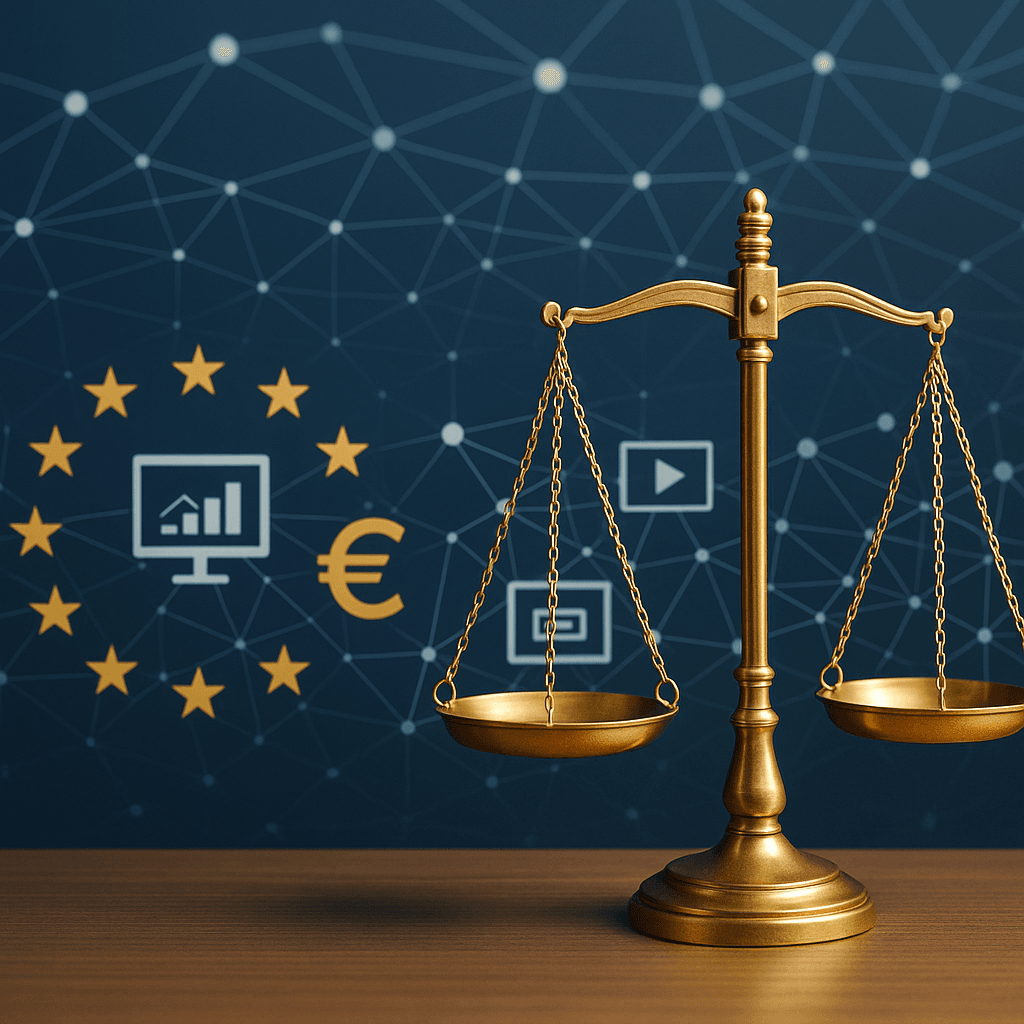Google just got slammed with a crushing €2.95 billion ($3.45 billion) antitrust fine from European Union regulators, marking one of the largest penalties ever imposed on the tech giant. The European Commission ruled that Google illegally distorted the advertising technology market by favoring its own services over competitors, dealing a major blow to the company's lucrative ad empire that generates over 80% of its revenue.
This isn't just another regulatory slap on the wrist – it's the European Union drawing a line in the sand against Google's advertising empire. The €2.95 billion fine, announced Friday by the European Commission, targets the heart of Google's business model: its dominance in the complex web of advertising technology that powers the modern internet.
The ruling sends immediate shockwaves through the digital advertising ecosystem, where Google controls an estimated 90% of the search advertising market and significant portions of display advertising. Alphabet shares dipped 2.1% in after-hours trading as investors digested the implications of potential structural changes to Google's ad operations.
"Today's decision shows that Google abused its dominant position in adtech harming publishers, advertisers, and consumers," EU competition chief Teresa Ribera declared in Friday's statement. The Commission's four-year investigation, launched in 2021, found that Google systematically favored its own display advertising services while shutting out competitors.
The mechanics of Google's alleged misconduct reveal the intricate ways tech giants can leverage market power. According to the Commission, Google operates on multiple sides of ad transactions – as both the platform where ads appear and the exchange where they're bought and sold. This creates what regulators call "inherent conflicts of interest" that allowed Google to steer business away from rival adtech companies.
Google isn't backing down quietly. Lee-Anne Mulholland, the company's global head of regulatory affairs, fired back immediately, calling the decision "wrong" and promising an appeal. "It imposes an unjustified fine and requires changes that will hurt thousands of European businesses by making it harder for them to make money," Mulholland argued, positioning Google as a defender of small businesses rather than a monopolistic giant.
The timing adds geopolitical intrigue to an already complex case. Reuters reported earlier this week that the Commission initially delayed announcing the fine while waiting for the U.S. to reduce tariffs on European cars as part of broader trade negotiations. This revelation underscores how antitrust enforcement has become intertwined with international trade policy.











